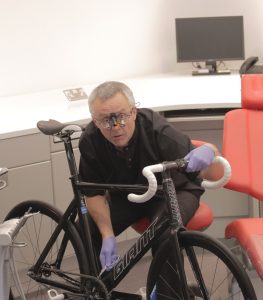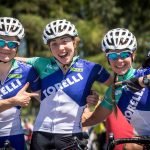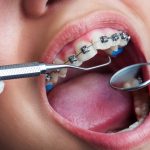How dentists can help a talented team compete and succeed
Main picture: Laura, Sophie and Jen at tour of the Reservoir. Sophie Wright was the overall winner!
Ian Hutchinson is well known in dentistry as a passionate and innovative orthodontist, keen to help dentists make good decisions about treating patients, and choosing and using the best orthodontic approaches, methods and systems for each patient. Each year up to 400 dentists attend his weekend seminars under the Wired Orthodontics, and Assure banners.
But one of Ian’s first passions was racing his bike, and if he had delayed or swayed from dentistry, he might have had an entirely different career.
Now, more than 30 years on from a decision to go to University, rather than to Europe to race, Ian is once again indulging his passion for time on his bike, and he has also committed to supporting one team of up and coming young cyclists.
Torelli Brother Assure (Torelli) are a relatively new team on the European circuit. The brainchild of ex-European Pro cyclist, Tony Orrell, Torelli was set up to become a serious player in the ‘next big thing’ in cycling – women’s cycle racing. And to boot, Torelli’s mission became to help develop young talent – giving young women who may not take the usual route to success a chance. With some sponsorship and a huge amount of determination Torelli’s results in its first seasons are impressive. The team have raced against amateur and pro teams and cyclists, racking up wins, and reputation, with some of the riders going on to accept professional contracts at the end of the first year.
 One of this year’s new recruits is a multiple Junior Scottish Champion and pro – hopeful, Georgia Mansfield, whom Ian had sponsored in her journey from determined schoolgirl to Torelli’s notice. En route from supporting this young Scottish cyclist, Ian has discovered that Torelli is this year desperately short of funds, and he is determined to help.
One of this year’s new recruits is a multiple Junior Scottish Champion and pro – hopeful, Georgia Mansfield, whom Ian had sponsored in her journey from determined schoolgirl to Torelli’s notice. En route from supporting this young Scottish cyclist, Ian has discovered that Torelli is this year desperately short of funds, and he is determined to help.
Ian is now organising further clinical, business and personal development evening, day and weekend courses for dentists and managers, where the proceeds are given to Torelli to help them fund travel, racing and equipment for the talented team of 16 women, racing all over the UK, and in Europe. And to help more immediately, Ian has been recording some online lectures for which he will ask a modest fee – payable to the team – in order to view. Ian is also hoping that the dental industry will help with sponsorship, and that other experts will be persuaded to record further online episodes. This is all to give a number of talented youngsters their first chance to turn their passion into the performance of their lives.
Ian’s first online lecture – ‘The Art of Self Defence’ – on consent in orthodontics is now available. Simply donate £40 or more on https://www.gofundme.com/essential-ortho-and-business-topics to be sent the code to view.







